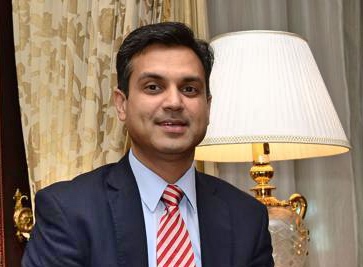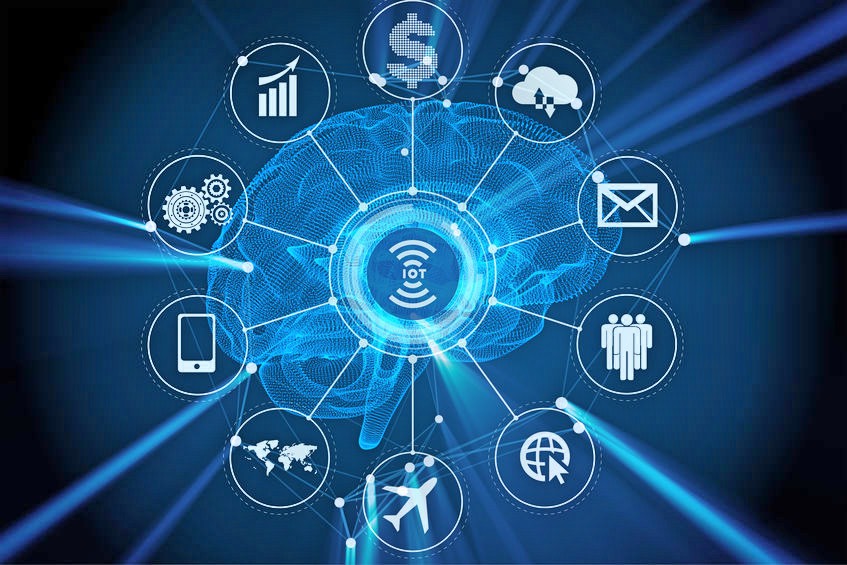Mumbai, Jan 28: Microsoft reiterated its vision for democratising AI and updated analysts and journalists from India, at its media event on January 16, in Bengaluru. Customers like Wipro, Future Generali India Life Insurance, L&T Technology Services, Talview, UST Global, and Apollo Hospitals spoke about how they are using Microsoft’s applications and technology for digital transformation within their respective organisations — using the four pillars of the company’s AI strategy. The company claims it is fueling Digital Transformation through AI for 700 customers. Sixty per cent of its customer base comprises large manufacturing and financial services companies. Microsoft has lined up 715 partners to support the AI ecosystem. It will also set up AI labs in 10 universities and train 500,000 youth across the country. It plans to upskill over 10,000 developers over the next three years. A recent report by Linkedin showed that AI is the fastest growing skill set, with a 190 per cent increase in AI skills on LinkedIn from 2015 to 2017. The report indicated that India is among the top three countries in AI skills.

Anant Maheshwari, President, Microsoft India
Anant Maheshwari, President, Microsoft India, said, ”The next wave of innovation for India is being driven by the tech intensity of companies – how you combine rapid adoption of cutting edge tech with your company’s own distinctive tech and business capabilities. We believe AI will enable Indian businesses and more for India’s progress, especially in education, skilling, healthcare and agriculture. Microsoft also believes that it is imperative to build higher awareness and capabilities on security, privacy, trust and accountability. The power of AI is just beginning to be realized and can be a game-changer for India.”
Speaking to Indian journalists in his morning keynote, Maheshwari said AI will grow exponentially, and the cost of prediction will fall – much faster in the next 10 years than how the computing industry evolved in the last decade. He said prediction capabilities are becoming a norm and everyone takes these for granted today, be it when typing text or for facial recognition apps.
“There are already a number of enterprises in India who are using AI. Globally, 85 per cent of enterprises will be using some form of AI by 2020,” said Mahehwari.
What’s driving AI adoption
According to Maheshwari, there are three reasons driving the growth of AI.
- The computing power of the cloud: Every individual now has access to the cloud through their devices, and also stores their data on the cloud. This can be a big enabler for AI, at scale.
- Data – The explosion of data will also accelerate AI adoption. Around 44 Zettabytes of data will be produced by the world by 2020. Annually, the world is generating 16 Zettabytes this year. It will triple in 2.5 to 3 years.
- Tools – Data is combined with the capability of analytics — with software, tools and analytics available to every person.
Maheshwari said the combination of these three things — cloud, data, tools — is the “perfect recipe” to see the explosion of AI.
The four pillars of Microsoft’s AI strategy include:
- Enabling Digital Transformation: Microsoft is committed to use its Cloud and AI technologies to create breakthrough innovations and accelerate the digital transformation of the nation, focusing on core industries that are critical to economic growth.
- Over 700 business and government organizations have adopted its Artificial Intelligence (AI) solutions to drive breakthroughs in their digital transformation. Over 60% of these AI customers come from large businesses in manufacturing, financial services. In addition, Microsoft is working with new-age organizations that are leapfrogging and disrupting industries.
- 715 partners are working with Microsoft in India to help customers design and implement a comprehensive AI strategy, aimed to boost employee productivity, increase business agility, improve customer engagement and jumpstart new product innovation.
- Building coalitions for responsible innovation: Microsoft works with government, industry, academic and civil society stakeholders to create a collective approach to AI and build solutions that meets the needs and expectations of citizens. Microsoft India is partnering with NITI Aayog to combine the cloud, AI, research and its vertical expertise for new initiatives and solutions across several core areas including agriculture and healthcare and the environment. We are also an active participant along with CII in looking at building solution frameworks for application in AI across areas such as Education, skills, health and agriculture.
- Bridging the skills gap and enhancing employability: Microsoft believes development of talent pipelines vital for economic growth and is working to empower individuals across all demographics with the skills needed to succeed in an AI enabled world. In India, Microsoft aims to skill over 10,000 developers; set up AI labs in 10 universities; and train 500,000 youth across the country over the next three years. Microsoft also recently announced the Intelligent Cloud Hub Program to equip research and higher education institutions with AI infrastructure, build curriculum and help both faculty and students to build their skills and expertise in cloud computing, data sciences, AI and IoT.
- Creating sustained social impact: Microsoft is enabling public and private organizations to apply Microsoft AI technologies to address pressing societal challenges. This includes healthcare, education, agriculture, local language computing environmental sustainability, accessibility opportunities, and supporting humanitarian action. 2018 saw Microsoft roll out several new projects across healthcare, including a partnership with Apollo Hospitals to use AI for early detection of cardiac diseases. SRL Diagnostics is applying Microsoft AI for more accurate diagnosis in digital pathology and early detection of diseases such as cancer.









